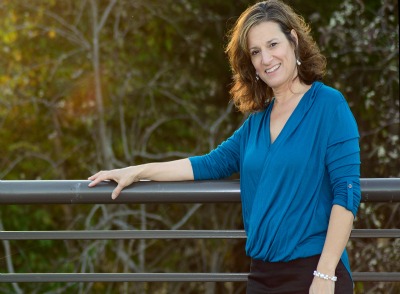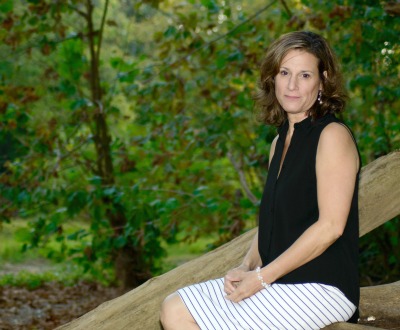Today, SevenPonds speaks with Mary York, founder of the Windows Within Project, part of the Hospice Volunteer program. An experienced hospice volunteer, Mary also interviews fellow hospice volunteers for the Windows Within Project website, whose goal is to educate readers on end-of-life issues. A Kentucky resident, Mary works with hospice volunteer coordinators to gather personal stories about caregiving and how interacting with people at the end of life changes the lives of those who care for them.

Credit: Mary York
Marissa: When I read a few submissions on the Windows Within Project website, I saw that you have a story about a patient who you would sing songs with, and that this was an important moment in your life. When did you decide that this and other hospice stories were worth sharing with the world?
Mary: Pretty soon into my volunteer work. I just felt like every time I had a visit, I really left with some kind of gift about what’s important in life. I felt like these patients were teaching me so much about what to be grateful for and what to acknowledge is important in life. I would come home and I would write them down. I thought, if I’m wanting to capture these experiences and how they’ve changed me, I was certain that other volunteers were feeling the same way. I wanted to interview others to see if that was really the case, and it really was. Themes of what was rewarding were so apparent when I talked to volunteers.
Marissa: When did you start talking to people about this?
Mary: My volunteer work began about three years ago, but my personal experience with hospice was something that happened 25 years ago, when my own mother was in hospice. I felt like when I finally had the time, I would do the training and volunteer. I volunteered for several years before I felt an interest for capturing these experiences.
Marissa: When you first thought of this project, how did it come about? Did you ask anyone for help getting it started?
Mary: Every hospice has volunteer managers or coordinators. I was at a small dinner event with our hospice managers, and it came up in conversation. I wondered if anyone had tried to capture these stories, to really sit down with volunteers and interview them to document their experiences. Their response was so positive, and they said, “You know, if we had the time to do this, then this is something that we would want to do. We just don’t have the time.” I said, “Would you allow me to interview them and see what emerges?”
They helped me identify about 10 volunteers in a variety of capacities of hospice — everything from respite care, to home care, to pet therapy, to massage therapy. They tried to give me a wide range of volunteer experiences. From there, these themes emerged, and I talked with them about documenting them in three ways.
One was to do a spotlight feature to talk about the volunteer’s perspectives, what gift they felt like they were receiving back and what was influencing their lives. Another theme was reflections, or stories in their own words. I found when I was interviewing them that they would tell me about experiences they had with patients in such a storytelling way. I thought, “This doesn’t even need to be edited by me. This is a story that can be shared. It has a personal touch, and a compassionate meaning behind it.”
The third was, as I was reading through my interview transcripts, I came across all of these incredible quotes. Some of them are spiritual in nature, some are about hospice volunteering, others are about life-changing meaning. So I’m collecting those quotes, and posting them on the web as well.
Marissa: What’s the response been like so far?
Mary: It’s been wonderful! I get lots of little notes from people, and they say, “Thank you for doing this. I’m so thankful you’re collecting these. I’m learning so much from them.”

Credit: Mary York
Marissa: Who can contribute to the website?
Mary: What I ask people to do is contact me through the website if they are a volunteer or a volunteer coordinator. I’ll also work with a coordinator to find volunteers who work with that particular hospice. We work together to identify which ones the coordinators think have some experiences that are really worthwhile and ready to share. It can be volunteers who have volunteered for a year or 15 years; they all have a different perspective. If the volunteer contacts me directly, I ask them to give me permission to contact their coordinators so that I can explain the program and how the volunteer is involved in the Windows Within Project. I actually invite others from that hospice to be interviewed as well.
Marissa: One thing I noticed when I looked at the site is that you never know who any of the patients are when you read the stories. Everything is confidential. Is this something you’re mindful of when you post these?
Mary: As hospice volunteers, we’re very mindful of any HIPAA violations. We cannot at all release any kind of patient information. I’m very, very conscious about doing that on the website. I’m able to reveal these perspectives without any personal identification. That’s just something we have to do.
Marissa: I can imagine this makes it more comforting for volunteers, too. It seems you’re protective of both the patients and the volunteers.
Mary: Thanks for noticing that. It almost becomes so secondary to the story that we’re trying to tell in these spotlights. It really doesn’t matter whether it’s somebody who’s 80 or somebody who’s 30. It’s really about telling of these rewarding gifts that volunteers receive back and the impact on their lives. It transfers to everyone’s lives. It’s not just volunteers; they just happen to be the receivers of these gifts. This is really about mobilizing cultural change around death and end-of-life. These stories are meant for everybody.
Marissa: Speaking of stories, do any in particular stand out to you as being especially powerful?
Mary: Well, there have been so many. It’s really interesting that each volunteer has their own lens, and through that lens comes this unique perspective, and they share that through these personal stories.
I think of an older gentleman, who’s a volunteer, I interviewed. I thought it was so profound that what drives what he does is spiritual in nature. He feels like he is doing God’s work in a sense. It can be anything from that, which is a spiritual outlook on life and where he fits within the spectrum of life (that he is a tool for God.)
And then you have someone like a teen volunteer. I was so taken aback when this teenage girl said to me, “You know, something that I realized is I have such gratitude for my parents. In the little bit of time I’ve spent in hospice helping patients, I’ve realized how physical it is to take care of somebody, to watch after their needs and be there for them, to have that responsibility.” She said, “I think about my parents, and how they cared for me since I was a baby.” You don’t hear something like that; you wouldn’t, unless you delved into these experiences.
I think of one volunteer who volunteers with children in hospice. Many of them have special needs. He told me one story of sitting with this wonderful girl who has a lot of physical problems. They had the sweetest interaction. She asked him to straighten her hand out so that it would look normal on her wheelchair. When they sat and talked, she would laugh and cackle, and he started calling her “my queen.” He left that visit saying to me, “This is the most special, beautiful girl, with the most beautiful laugh and soul.” He said, “I felt like I was a prince, because I was on the receiving end, because there probably won’t be another young man in her life who gets that gift of her laugh.”
Every interview has something profound that comes out of it.
Marissa: What do you want readers to get from these stories?
Mary: I hope that by sharing these stories, I can give people a sense of normalcy about end of life. That they will be less afraid to lean into it and understand it. I want to raise awareness that it’s not scary, it doesn’t have to be painful. There’s this incredible gift of time that you can spend with someone at the end of their life that becomes life-enriching. That’s what I hope we can do for people on whatever spectrum, whether they don’t want to face death at all or have thought about it and want a little more comfort and awareness.
Marissa: You obviously speak from a caregiver’s perspective, which we don’t often get to hear when we talk about terminal illness. What advice can you give to caregivers, whether in hospice or caring for loved ones at home?
Mary: I think we can be reminded of some of the simplest things, and I think we tend to live such busy lives that it’s the simple things we forget. A lot of volunteers, myself included, talk about this slow quietness that you share with patients at the end of their lives. It allows you to just be present. You don’t have to speak. You can actually sit with them in quietness, and it’s a lovely, peaceful, healing feeling. You don’t have to do anything. You can relax into that moment. There’s a witnessing of many of life’s mysteries, and if you allow yourself to be there and observe, that’s important.
There’s also an element of courage. We all don’t know what the progression will be for someone who’s at the end of their life. It takes courage to say, “It’s OK that I don’t know. I understand that every day will be different, and I’m willing to push through that.” Human presence is the gift that you can give, and it’s more valuable than anything.
Marissa: What do you wish people knew about hospice?
Mary: When people think of hospice, and people think of end of life, they don’t often think that there’s beauty in that. That’s the biggest take-home about this project, knowing that there is beauty in hospice, and you have to be willing to look for it.
Mary York’s 12 Days of Hospice Volunteering
On the twelfth day of visits, my patients gave to me:
Twelve Treasured Stories
Eleven Hugs of Healing
Ten Gifts of Knowledge
Nine Hands a Holding
Eight Lasting Memories
Seven Simple Sittings
Six Sacred Moments
Five Gifts of Grace
Four Photo Shares
Three New Skills
Two Treasured Notes
And a Heart full of Wonder and Awe
Stay tuned next week for our interview with Windows Within contributor and hospice volunteer Linda Clark!

 What Can Hospice Teach Us About Coping? An Interview with Mary York
What Can Hospice Teach Us About Coping? An Interview with Mary York




 First the Wealth Gap, Now the U.S. Has a Growing Health Gap
First the Wealth Gap, Now the U.S. Has a Growing Health Gap

 Our Annual Seven Holiday Gifts for Someone Who Is Grieving, 2024 Edition
Our Annual Seven Holiday Gifts for Someone Who Is Grieving, 2024 Edition














